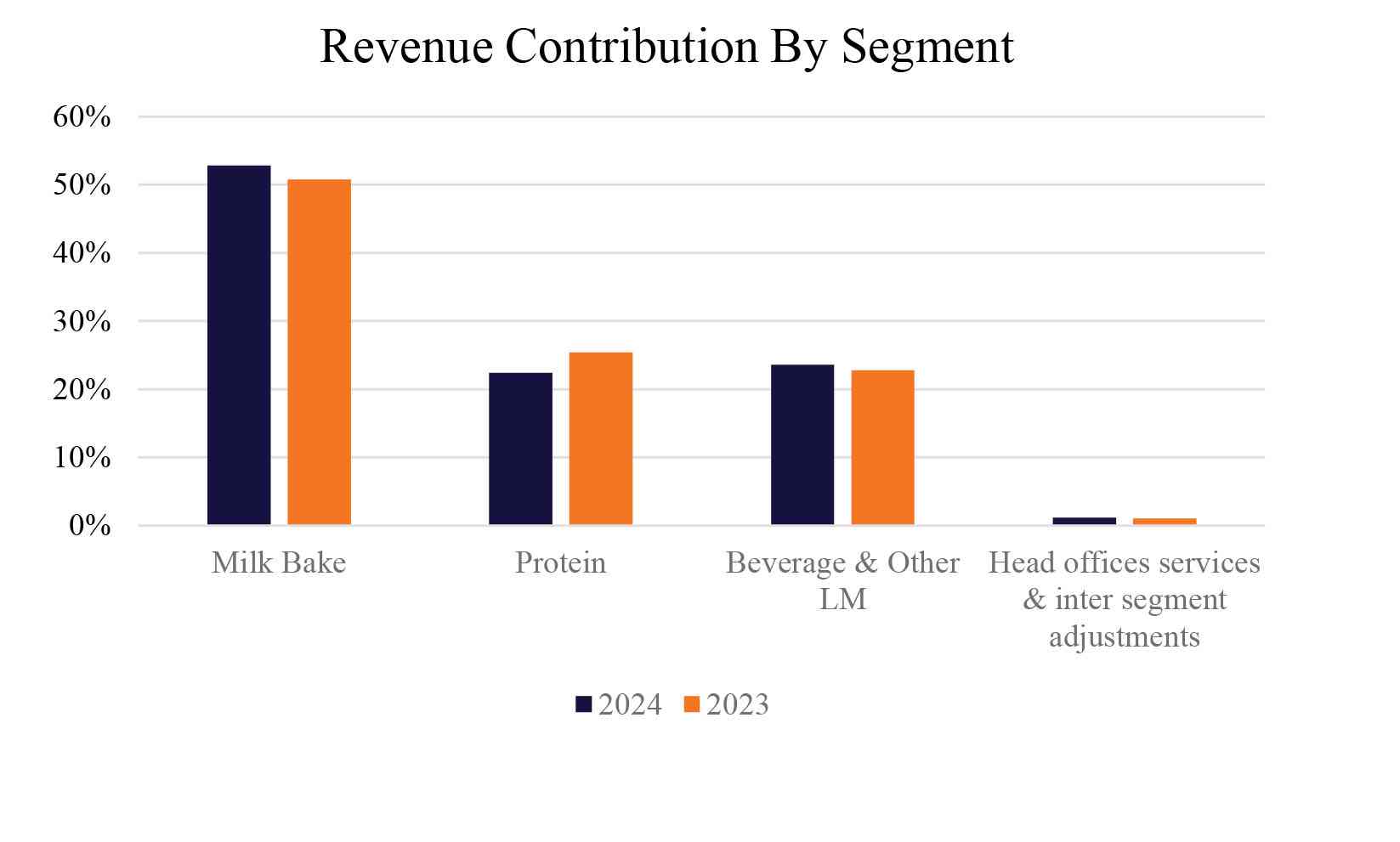
IN today's business landscape, the integration of economic, environmental, social, and governance (ESG) factors into corporate strategy has become increasingly critical.
With increasing expectations from stakeholders to demonstrate a commitment to sustainability and ethical governance, integrating ESG into their strategic decision-making, risk management, and financial disclosures is essential for achieving long-term success.
Recognising the tangible impact of sustainability commitments on capital allocation and market positioning has become a strategic priority hence the need for businesses to shift their focus from solely financial performance to include sustainability, ethical practices, and robust governance as critical components of long-term value creation.
Aligning ESG with corporate strategy is crucial for fostering innovation and driving long-term growth. Companies that integrate ESG considerations into their business models are often better positioned to capitalise on emerging trends and consumer preferences.
For instance, the shift toward renewable energy and sustainable products is creating new market opportunities for companies that prioritise environmental stewardship.
By investing in sustainable technologies and practices, companies not only reduce their environmental impact but also enhance their competitive edge.
This approach to innovation can lead to the development of new products and services that meet the growing demand for sustainability, thereby unlocking additional revenue streams and enhancing brand reputation in the process.
Further, aligning ESG with corporate strategy is important for building resilience against disruptions and fostering stakeholder trust. In an era marked by increasing social and environmental challenges — from climate change to inequality — companies that prioritise ESG considerations are better equipped to navigate uncertainties.
- Unpacking environmental laws for real estate in Zimbabwe
- Veld fire management strategies for 2022
- Stop harassing media for reporting truth
- Zacc goes after Zimra
Keep Reading
By establishing risk management frameworks that incorporate ESG factors, companies can anticipate potential disruptions and respond more effectively to crises.
This resilience does not only protect the company’s bottom line but also builds trust with stakeholders, including employees, customers, and investors.
A strong ESG commitment signals to stakeholders that the company is dedicated to ethical practices and long-term sustainability, which can enhance loyalty and support.
Ultimately, this alignment creates a virtuous cycle of trust and performance, driving both organisational success and positive societal impact. The global emphasis on ESG factors is transforming consumer expectations and market dynamics. As awareness of ESG issues rises, consumers are increasingly demanding that companies take accountable actions regarding sustainability and ethical behaviour.
This shift not only influences purchasing decisions but also shapes brand reputation and loyalty. Companies that proactively engage in sustainable practices and effectively communicate their ESG commitments are likely to enhance their competitive positioning.
By leveraging marketing and public relations to highlight their ESG initiatives, companies can strengthen their brand image and attract a broader customer base, including younger consumers who prioritise sustainability in their choices.
To achieve effective alignment between ESG and corporate strategy, companies should undertake several critical steps, including conducting a thorough assessment of current ESG practices to identify gaps.
This assessment may involve stakeholder surveys, risk analyses, and benchmarking against industry standards. Establishing specific, measurable, achievable, relevant, and time-bound (SMART) goals is crucial; these objectives should align with the overarching corporate strategy and address key ESG challenges pertinent to the company.
The rationale for aligning ESG objectives with corporate strategy can be expressed through incorporating ESG factors to enable companies to identify and mitigate risks that could adversely affect their operations and reputation.
For example, climate-related risks can disrupt supply chains, while inadequate labour practices can trigger public outcry and legal repercussions.
Identifying and engaging stakeholders in the development of the ESG strategy fosters transparency and encourages buy-in. Regular communication and feedback mechanisms are essential to this engagement process. Integrating ESG strategy into corporate strategy requires strong collaboration and support from various groups within a company, but it will prove invaluable as companies navigate the changing business landscape.
Further, ESG considerations should be integrated into the company's governance framework, which could involve the establishment of an ESG committee at the board level and tying ESG performance to executive compensation.
Continuous monitoring of ESG performance against established goals is vital, and companies should adopt transparent reporting practices to communicate progress to stakeholders effectively.
However, the landscape of ESG regulations is evolving rapidly and can present both challenges and opportunities for businesses. In many jurisdictions, regulatory requirements are becoming increasingly stringent, with mandates for greater transparency in ESG reporting and accountability for sustainability practices.
Companies must stay informed about regulatory developments and adapt their strategies accordingly to ensure compliance while also leveraging ESG initiatives as a competitive advantage.
In Zimbabwe, the regulatory landscape is particularly relevant given recent directives from the Zimbabwe Stock Exchange (ZSE), Victoria Falls Stock Exchange (VFEX) and the Reserve Bank of Zimbabwe (RBZ) Guideline No.01-2023/BSD: Climate Risk Management regarding ESG issues.
This push for enhanced sustainability reporting aims to improve transparency and accountability among listed companies, encouraging them to adopt practices that align with global ESG standards.
This helps to attract a broader base of investors, who prioritise sustainability in their investment decisions. Companies operating in Zimbabwe must navigate these challenges while striving to align their strategies with ESG principles, which may require innovative approaches to stakeholder collaboration and risk management.
The integration of ESG factors into corporate strategies is gaining momentum globally, with significant implications for companies and industries.
A notable trend is the substantial growth in investment focused on ESG criteria. Over US$120 trillion in assets are now managed under the UN Principles for Responsible Investment, reflecting a strong market preference for sustainable investments.
This shift indicates that investors are increasingly prioritising sustainability as a key component of their portfolios.
Corporate reporting on ESG practices is also on the rise. A survey conducted by KPMG found that 91% of European Union (EU) companies reported climate-positive activities, demonstrating a significant commitment to sustainability among European firms. This trend is further driven by changing consumer expectations; as awareness of climate change rises, consumers are demanding greater accountability from companies regarding their sustainability practices.
This shift not only influences purchasing decisions but also shapes brand loyalty.
In Africa, the landscape for ESG adoption is evolving, with many countries developing regulatory frameworks to encourage sustainable practices.
The African Union's Agenda 2063, for instance, incorporates ESG as a critical element in advancing the continent’s development, aligning with the United Nations' Sustainable Development Goals.
According to the 2023 Oxford Business Group Global CEO survey, about 19,7% of chief executive officers (CEOs) in Africa cited enhancing corporate image and reputation as the primary motivation for adopting ESG standards, while compliance with regulatory requirements and internal stakeholder demands also played significant roles.
Investment priorities are shifting as well. The African Private Equity and Venture Capital Association reported that 18% of Limited Partners (LPs) prioritise ESG considerations in their investment decisions, signifying a growing trend towards responsible investing in the region.
However, challenges remain, such as a lack of standardised ESG policies and the prevalence of informal economies.
Despite these hurdles, the focus on ESG is expected to increase with economic development, creating more opportunities for sustainable investments.
Companies should leverage data analytics to measure and report on their ESG performance accurately. Utilising technology enhances the precision of reporting and provides insights into areas for improvement.
Encouraging collaboration across various departments — such as finance, operations, and marketing — ensures a universal approach to ESG integration, embedding these principles into the core of business operations. Additionally, investing in training programmes for employees to raise awareness about ESG issues fosters a culture of sustainability within the company, enhancing commitment to ESG goals at all levels.
Aligning ESG with corporate strategy is no longer merely an option; it is essential for long-term success in a rapidly changing market landscape.
Businesses should adopt a long-term perspective when integrating ESG into their strategies, recognising that sustainability efforts may not yield immediate financial returns but can lead to substantial value creation over time.
- Machodo is an environment and sustainability consultant with the Institute for Sustainability Africa (INŚAF), an independent multi-disciplinary sustainability think-tank with 14 years’ experience in “advancing sustainability initiatives for Africa”. These weekly New Horizon articles, published in the Zimbabwe Independent, are coordinated by Lovemore Kadenge, an independent consultant, managing consultant of Zawale Consultants (Pvt) Ltd, past president of the Zimbabwe Economics Society and past president of the Chartered Governance & Accountancy Institute in Zimbabwe (CGI Zimbabwe). — [email protected] or mobile: +263 772 382 852.











